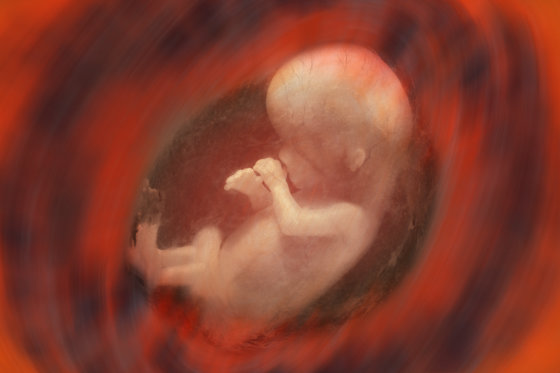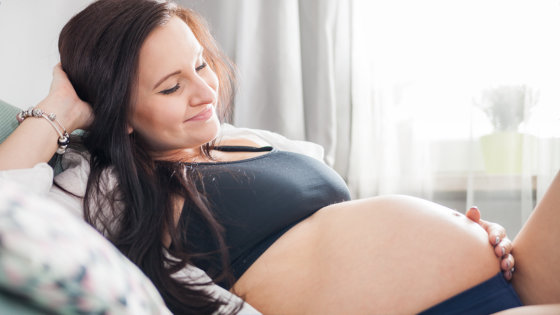
임신한 여성이 태아에게 보내는 자가항체가 자폐증의 원인이 된다고 최근 지적되고 있는데, 기계학습을 이용한 분석에서 자폐증이 될 확률을 31배 높이는 자가항체를 특정하는 데 성공했습니다. 연구진은 이 연구로 임신 전 여성이 자폐아를 출산할 위험을 알 수 있게 될 것으로 기대하고 있습니다.
Risk assessment analysis for maternal autoantibody-related autism (MAR-ASD): a subtype of autism | Molecular Psychiatry
https://www.nature.com/articles/s41380-020-00998-8
Biomarkers in mother’s plasma predict a type of autism in offspring with 100% accuracy
https://health.ucdavis.edu/health-news/mindinstitute/biomarkers-in-mothers-plasma-predict-a-type-of-autism-in-offspring-with-100-accuracy/2021/01
Biomarkers in mother’s plasma predict a type of autism in offspring with 100% accuracy
UC Davis MIND Institute researchers used machine learning to crunch 10,000 autoantibody pattern combinations to identify maternal biomarkers associated with a sub-type of autism. The findings have implications for early diagnosis and intervention.
health.ucdavis.edu
Machine Learning Detects Autoantibody-Linked Autism with 100% Accuracy
https://www.clinicalomics.com/topics/translational-research/autoimmune-disorders/machine-learning-detects-autoantibody-linked-autism-with-100-accuracy/
Machine Learning Detects Autoantibody-Linked Autism with 100% Accuracy
Research shows that maternal autoantibody-related autism spectrum disorder (MAR ASD) accounts for 20% of all autism cases. In MAR ASD, antibodies made by the mother appear to attack her own tissues as well as a fetus’s developing brain.
www.clinicalomics.com
Machine learning identifies patterns of maternal autoantibodies associated with autism
https://www.news-medical.net/news/20210126/Machine-learning-identifies-patterns-of-maternal-autoantibodies-associated-with-autism.aspx
Machine learning identifies patterns of maternal autoantibodies associated with autism
Using machine learning, researchers at the UC Davis MIND Institute have identified several patterns of maternal autoantibodies highly associated with the diagnosis and severity of autism.
www.news-medical.net
자폐증 스펙트럼 장애(ASD)는 오랫동안 원인을 알 수 없었지만, 1990년대에 모체의 혈청에 포함된 자가항체와 자폐증 태아의 뇌 사이에 관련성이 있다는 논문이 발표되기 시작했습니다. 자가항체는 자기의 세포조직을 대상으로 생산된 항체로, 하시모토병이나 그레이브스병 등 자가면역질환의 원인으로 알려져 있습니다.
2010년대에 모체의 태반을 통해 태아에게 보내는 항체에 자가항체가 포함되어 태아에게 필요한 뇌의 단백질을 표적으로 공격을 한다고 발표되었습니다 . 지금까지의 연구에서는 모체의 자가항체가 원인으로 발생하는 자폐증(MAR ASD)은 자폐증 전체의 20%를 차지하는 것으로 분석되었습니다.

새로운 연구에서 UC Davis Big Ideas 연구팀은 자폐아의 환경적 원인의 규명을 목적으로 하는 CHARGE Study의 혈청샘플을 기계학습으로 분석했습니다. 분석대상이 된 것은 자폐아의 모체 450명과 자폐증이 아닌 아이의 모체 342명의 혈청샘플로, 각각의 혈청이 태아의 뇌에 풍부하게 들어있는 8개의 단백질(CRMP1 · CRMP2 · GDA · NSE · LDHA · LDHB · STIP1 · YBOX)에 대해 어떻게 반응하는지를 조사했습니다. 이러한 단백질은 태아의 뇌에서 신경의 신생, 대사, 항상성에 대해 중요한 역할을 하기 때문에, 자가항체와 결합하면 발달중인 뇌가 큰 영향을 받을 가능성이 있습니다.
기계학습을 이용하여 약 1만 개의 자가항체의 반응패턴을 분석한 결과, 모체의 'CRMP1 / GDA', 'CRMP1 / CRMP2', 'NSE / STIP1'라는 세 가지 조합에 대한 자가항체를 가지고 있으면 특히 자폐증이 발생하기 쉽다는 것을 발견했습니다. 가장 확률이 높은 것은 'CRMP1 / GDA'라는 단백질의 조합으로, 이 조합이 자가항체의 표적이 되면 31배나 자폐증이 발생위험이 높아진다고 합니다. 그 다음으로 높은 것이 'CRMP1 / CRMP2'로 26배, 세 번째가 'CRMP1 / CRMP2'로 23배입니다. 어떤 반응패턴에서도 CRMP1가 포함되면 중증도가 높아진다고 연구자들은 보고 있습니다.

논문의 저자 중 한 명인 주디 반드워터 씨는 "이 연구의 영향은 매우 크다고 생각합니다. 기계학습을 사용하여 MAR ASD의 특정 패턴을 자폐증 위험의 잠재적인 바이오마커로 100%의 정확도로 특정한 것은 처음입니다"라고 말합니다.
반드워터 씨는 이러한 바이오마커를 사용하여 자폐증의 조기진단과 효과적인 개입을 할 수 있을 가능성이 있다고도 언급하며, 임신 전에 여성이 혈액검사로 항체의 유무를 조사하여 자폐아를 출산할 가능성을 조사할 수 있게 될 것으로 전망했습니다.
'의학' 카테고리의 다른 글
| 요산수치가 높으면 수면장애에 걸리기 쉽다 (0) | 2021.02.01 |
|---|---|
| 고요산혈증이란? 증상과 요산수치가 높아지는 요인 (0) | 2021.02.01 |
| 생명을 위협하는 통풍의 원인 (1) | 2021.02.01 |
| 왜 사람들은 휴일에도 업무메일을 확인할까? (0) | 2021.01.30 |
| '뚱뚱하고도 건강하다'는 것은 있을 수 없다는 연구결과 (0) | 2021.01.27 |
| 일반상식을 잘 아는 사람의 뇌는 회로가 효율화되어 있을지도 모른다 (0) | 2021.01.27 |
| 수면부족이나 스트레스로 인해 뇌진탕으로 간주되어 버릴 가능성 (0) | 2021.01.26 |
| 뇌가 갑작스런 충격을 받으면 어떻게 되는지를 노른자로 실험 (0) | 2021.01.26 |



